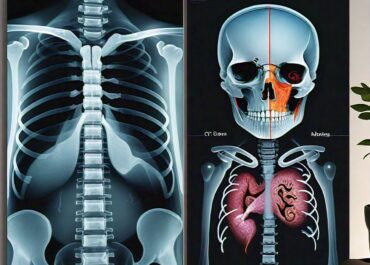
Differences Between Doula and Midwife
When it comes to childbirth, many people seek out the services of professionals who can support them through the physical, emotional, and medical aspects of labor and delivery. Two such professionals are doulas and midwives, both of whom play important roles in the childbirth process. However, their responsibilities, training, and the type of care they provide differ significantly.
A doula provides continuous emotional, physical, and informational support during pregnancy, labor, and postpartum, but does not perform medical tasks. A midwife, on the other hand, is a medically trained professional who can deliver babies and provide prenatal and postnatal care, as well as perform medical interventions if necessary.
Understanding the differences between a doula and a midwife can help expecting parents choose the right support team for their birthing experience, whether they are planning a natural home birth, a hospital delivery, or something in between.
Doula Overview
Introduction to Doulas
A doula is a trained professional who provides non-medical, holistic support to expecting mothers and their families before, during, and after childbirth. The word "doula" comes from the ancient Greek word for "servant" or "helper," which reflects the primary role of a doula: to offer continuous physical, emotional, and informational support to the mother and her partner throughout the birthing process.
Doulas focus on creating a positive birth experience for the mother by offering reassurance, comfort, advocacy, and guidance. They do not perform clinical tasks, such as delivering the baby or performing medical interventions, but they complement the medical care provided by doctors or midwives by focusing on the emotional and physical well-being of the mother.
Types of Doulas
There are several types of doulas, each specializing in different stages of pregnancy and postpartum care:
- Birth Doula: A birth doula supports the mother during labor and delivery, helping her through contractions, offering comfort measures, and providing emotional support. They may also assist in communicating the mother’s birth plan to the medical team.
- Postpartum Doula: A postpartum doula provides support after the baby is born, helping the family adjust to life with a newborn. This may include assisting with breastfeeding, offering infant care tips, and providing emotional support during the postpartum period.
- Antepartum Doula: For women experiencing high-risk pregnancies or complications, an antepartum doula can provide support during pregnancy, helping the mother cope with bed rest or other medical needs.
- Full-Spectrum Doula: A full-spectrum doula supports individuals through the entire reproductive experience, including miscarriage, abortion, or fertility treatments, as well as childbirth and postpartum.
The Role of a Doula During Labor
During labor, a doula’s primary focus is on the mother’s comfort and emotional well-being. The doula may use various techniques to help the mother manage pain and anxiety, including:
- Breathing Techniques: Doulas often guide mothers through breathing exercises that can help manage pain and focus during contractions.
- Massage and Positioning: Doulas may use massage, counterpressure, and suggest different labor positions to help alleviate discomfort and encourage labor progression.
- Emotional Support: A doula provides constant emotional reassurance, offering encouragement and calmness during what can be a stressful time.
- Advocacy: Doulas help mothers communicate their needs and preferences to the medical team, ensuring that the mother’s birth plan is respected as much as possible.
- Information and Guidance: A doula offers information to help the mother make informed decisions during labor and delivery, such as understanding medical interventions or procedures.
Postpartum Support from a Doula
After childbirth, a postpartum doula helps the family transition into life with a newborn. This support can include:
- Breastfeeding Assistance: A doula may help with latching, positioning, and other breastfeeding challenges.
- Emotional Support: The postpartum period can be emotionally challenging, and a doula provides a compassionate presence to help the mother cope with the physical and emotional demands of recovery and parenting.
- Practical Help: Postpartum doulas may assist with household tasks, infant care, and helping the family establish routines.
Training and Certification for Doulas
While doulas are not medical professionals, many undergo formal training to develop their skills in supporting pregnant and postpartum individuals. Various organizations, such as DONA International and CAPPA (Childbirth and Postpartum Professional Association), offer certification programs for doulas. These programs typically cover topics such as childbirth education, comfort measures, communication skills, and breastfeeding support. However, certification is not mandatory to practice as a doula.
Benefits of Having a Doula
Studies have shown that having a doula present during labor can lead to several positive outcomes, including:
- Shorter Labor: Continuous support from a doula has been associated with shorter labor durations.
- Reduced Need for Interventions: Women with doulas are less likely to require medical interventions such as epidurals, forceps, or C-sections.
- Greater Satisfaction with Birth Experience: Mothers who use doulas report feeling more satisfied with their birth experience due to the emotional and physical support provided.
- Lower Rates of Postpartum Depression: The continuous emotional support offered by a doula may reduce the risk of postpartum depression.
Midwife Overview
Introduction to Midwives
A midwife is a healthcare professional who specializes in providing medical care to women during pregnancy, labor, childbirth, and postpartum. Midwives are trained to manage normal pregnancies and deliveries, and they can provide a range of services, including prenatal care, childbirth education, delivery of the baby, and postpartum care. Unlike doulas, midwives are qualified to perform medical tasks such as delivering babies, administering medications, and intervening in certain complications.
Midwives have been an integral part of childbirth for centuries, and today they practice in a variety of settings, including hospitals, birth centers, and home births. Midwifery is rooted in the belief that pregnancy and childbirth are natural, physiological processes, and midwives often emphasize personalized, holistic care that supports the mother’s physical, emotional, and mental well-being.
Types of Midwives
There are several different types of midwives, each with different levels of training and certification:
- Certified Nurse-Midwife (CNM): A CNM is a registered nurse (RN) who has completed additional training in midwifery and is certified to provide comprehensive maternity care. CNMs are licensed to practice in hospitals, birth centers, and home settings. They can also prescribe medications, including pain relief during labor.
- Certified Midwife (CM): A CM has completed midwifery training but does not have a nursing background. CMs are licensed to provide maternity care and can practice in various settings, but they may have different licensure requirements depending on the state or country.
- Certified Professional Midwife (CPM): A CPM is a midwife who is certified to practice out-of-hospital births, such as at home or in birth centers. CPMs are trained to handle low-risk pregnancies and births but are not licensed to practice in hospitals in some regions.
- Lay Midwife: A lay midwife is a midwife who has not completed formal certification but may have gained experience through apprenticeships or informal training. Lay midwives typically attend home births.
The Role of a Midwife During Pregnancy and Labor
Midwives provide comprehensive medical care throughout the pregnancy, including:
- Prenatal Care: Midwives offer routine prenatal checkups, monitor the health of both the mother and baby, and perform tests to ensure the pregnancy is progressing normally. They may also provide nutritional counseling, childbirth education, and emotional support.
- Labor and Delivery: Midwives are trained to deliver babies and provide medical care during labor. They monitor the progress of labor, check the baby’s heart rate, and offer pain relief options. Midwives can also intervene in certain complications, such as performing episiotomies or managing excessive bleeding.
- Natural and Low-Intervention Births: Midwives often support women who wish to have natural, low-intervention births. They are skilled in using non-medical pain relief techniques and may encourage laboring women to use different positions, hydrotherapy, or movement to facilitate labor.
- Postpartum Care: After the baby is born, midwives provide care for both the mother and baby. This includes monitoring the mother’s physical recovery, offering breastfeeding support, and checking the baby’s health.
Medical Responsibilities of a Midwife
Midwives are licensed to provide a wide range of medical services during pregnancy and childbirth, including:
- Monitoring Fetal Development: Midwives use ultrasounds, fetal heart monitors, and other tools to track the baby’s growth and development.
- Administering Pain Relief: Midwives can administer pain relief options, including epidurals, in hospital settings, though they may prefer non-medical pain management techniques in birth centers or home births.
- Delivering Babies: Midwives are trained to deliver babies, either in hospitals, birth centers, or at home. They are skilled in handling the normal stages of labor and delivery and managing complications when they arise.
- Postpartum Care: Midwives continue to provide care for the mother and baby after birth, helping with breastfeeding, monitoring recovery, and addressing any health concerns.
Training and Certification for Midwives
The educational requirements for midwives vary depending on the type of midwife. Certified Nurse-Midwives (CNMs) must first become registered nurses (RNs) and then complete a graduate-level midwifery program, which typically includes both classroom education and clinical training. CNMs must also pass a certification exam to become licensed.
Certified Midwives (CMs) and Certified Professional Midwives (CPMs) may follow different educational paths, but both must complete accredited midwifery programs and pass certification exams. In some regions, midwives must also meet state licensure requirements to practice.
Benefits of Having a Midwife
- Holistic, Personalized Care: Midwives provide individualized care that focuses on the physical, emotional, and psychological needs of the mother.
- Low-Intervention Births: Midwives are skilled in supporting natural births with minimal medical intervention, making them a good choice for women who prefer low-intervention deliveries.
- Comprehensive Maternity Care: Midwives offer care throughout pregnancy, labor, delivery, and postpartum, ensuring continuity of care for the mother and baby.
Differences Between Doula and Midwife
- Role:
- Doula: Provides emotional, physical, and informational support before, during, and after childbirth but does not perform medical tasks or deliver babies.
- Midwife: A medical professional trained to provide prenatal care, deliver babies, and offer postpartum care.
- Training:
- Doula: Doulas undergo non-medical training to offer support during labor and postpartum but do not have medical qualifications.
- Midwife: Midwives are licensed healthcare providers with formal medical training in childbirth and maternal care.
- Medical Responsibilities:
- Doula: Doulas cannot perform medical procedures, administer medications, or make clinical decisions.
- Midwife: Midwives can perform medical procedures, administer pain relief, and handle complications during childbirth.
- Setting:
- Doula: Doulas can work in any birth setting (hospital, home, or birth center) but do not provide medical care.
- Midwife: Midwives can practice in hospitals, birth centers, or home settings, depending on their certification and licensing.
- Focus:
- Doula: Focuses on emotional and physical support, comfort measures, and advocacy for the mother’s preferences.
- Midwife: Focuses on the medical aspects of pregnancy and birth, monitoring the health of both mother and baby.
- Pain Management:
- Doula: Offers non-medical pain relief techniques such as massage, breathing exercises, and positioning.
- Midwife: Can offer medical pain relief options, such as epidurals, as well as non-medical techniques.
- Postpartum Care:
- Doula: Provides emotional and practical support in the early postpartum period, helping with breastfeeding and newborn care.
- Midwife: Offers medical postpartum care, checking the mother’s physical recovery and the baby’s health.
- Education and Certification:
- Doula: Certification is optional, and training focuses on support during childbirth and postpartum.
- Midwife: Certification and licensing are mandatory, with extensive medical education and clinical training.
- Collaboration:
- Doula: Works alongside medical professionals (including midwives and doctors) but does not replace medical care.
- Midwife: Provides medical care and can work independently or alongside obstetricians for high-risk pregnancies.
- Legal Scope:
- Doula: Not regulated as a healthcare professional; operates in a supportive, non-clinical role.
- Midwife: Licensed healthcare provider, regulated by medical boards, and subject to legal standards of care.
Conclusion
Both doulas and midwives play important roles in supporting women through pregnancy, childbirth, and postpartum, but their roles and responsibilities differ significantly. A doula provides emotional, physical, and informational support, ensuring the mother feels supported and empowered throughout the birthing process. They focus on comfort, advocacy, and the emotional experience of childbirth but do not provide medical care. A midwife, on the other hand, is a trained healthcare professional who can provide comprehensive maternity care, deliver babies, and manage any medical aspects of pregnancy and childbirth.
Choosing between a doula and a midwife—or opting for both—depends on the needs and preferences of the mother and her family. Some families may choose a doula for emotional support and a midwife or doctor for medical care, while others may prefer to have only a midwife present. Both doulas and midwives are valuable partners in helping mothers achieve a positive and empowered birth experience.
FAQs
Related Topics
- All
- Animals
- Diseases
- Health
- Money
- Politics
© 2024 OnYelp.com. All rights reserved. Terms and Conditions | Contact Us | About us





